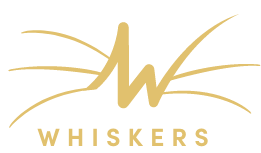Blue green algae consists of a type of bacteria known as cyanobacteria. They have the appearance of algae or scum when they clump together in the water, looking like green/brown flakes, foam or bundles and tend to be blown to the edge of the water. The bacteria appear as ‘blooms’ whereby they will suddenly appear, and this usually occurs in the summer (although concentrations can vary through the year). Non-flowing fresh water such as lakes and ponds are most affected, but rivers and streams can also be affected. The cyanobacteria can sometimes be harmful even when you cannot see it so do take notice of any signs or warnings.
Why is blue-green algae dangerous?
The bacteria can produce harmful toxins which prevent a dog’s nervous system or liver from working and sadly, the prognosis is grave and exposure is often fatal. Some types can kill a dog within 15-30 minutes after ingestion. Dogs can be affected either by direct ingestion of the water or ingestion of the bacteria when grooming themselves after swimming. Not all types of the bacteria are harmful, but it is impossible to tell if a bloom is dangerous without laboratory analysis; it is best not to take the risk.
What are the symptoms of blue-green algae toxicity?
- Vomiting
- Diarrhoea
- Seizures/fitting
- Weakness/collapse
- Unconsciousness
- Confusion
- Drooling
- Breathing problems.
How can toxicity be treated?
There is no antidote for the toxins and ingestion can be fatal. Aggressive veterinary treatment is required. This involves:
- Making your dog sick if it has been recently ingested
- Decontamination of fur
- Activated charcoal
- Oxygen therapy
- Putting your dog on a drip/fluid therapy
- Medication to reduce seizures
- Medication to protect the liver
How can I prevent toxicity?
- Never let your dog swim or drink from water that could be contaminated with blue-green algae
- Look out for warning information
- Wash your pet after walks if they have been swimming
- Monitor garden ponds for signs of algal bloom
- Visit the vet IMMEDIATELY if you are concerned your dog may have ingested any contaminated water. Contact the practice on 01626 835002




